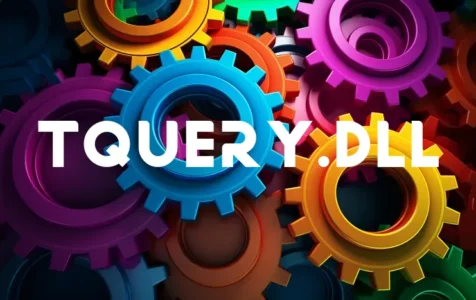Introduction to Tquery.dll
The file tquery.dll is an integral component of the Windows operating system, particularly related to search functions. It forms a part of Microsoft Tripoli Query, a program developed by Microsoft Corporation. This Dynamic Link Library (DLL) file is involved in the search indexing process and assists in handling search queries within Windows. The system32 directory of Windows, where tquery.dll resides, plays a crucial role in the overall functionality and performance of the operating system.
Functionality and Association with Other Files
Tquery.dll interacts with various other DLL files within the Windows operating system to perform its functions. Some of the notable files that are statically linked to tquery.dll are mssrch.dll and Search.ProtocolHandler.MAPI2.dll, meaning that when these files are loaded, tquery.dll will be loaded too, ensuring proper synchronization between them.
Is Tquery.dll Safe?
For most users, tquery.dll is a legitimate file and not a virus or malware. Its purpose is centered around enhancing and managing search-related tasks on your computer. However, you should always stay vigilant, as there can be malicious programs that disguise themselves as legitimate DLLs like tquery.dll to avoid detection.
Common Issues and Resolutions
Several issues can arise related to tquery.dll:
Expert Tip: For smoother PC performance, consider using a PC optimization tool. It handles junk files, incorrect settings, and harmful apps. Make sure it's right for your system, and always check the EULA and Privacy Policy.
Special offer. About Outbyte, uninstall instructions, EULA, Privacy Policy.
1. Errors such as ‘dll not found’ or ‘dll is missing’: These are common and usually indicate either accidental deletion of tquery.dll or corruption of the file.
2. Application Crashes: Faulty applications may lead to tquery.dll errors, resulting in crashes of certain software, particularly those associated with search and indexing functionalities.
3. Performance Issues: In some cases, tquery.dll could cause CPU and memory usage issues, slowing down your computer’s performance.
To resolve these problems, the recommended approach is to either update the applications that are causing the issue or, if necessary, completely uninstall them. For missing or corrupted DLL files, restoring or downloading a new copy of tquery.dll from a reputable source and placing it in the correct directory can also be a solution.
NOTE: Extreme caution should be exercised when downloading DLL files from the internet as they may be untrustworthy or infected with viruses. Only source DLL files from reputable and official sources.
Finding More Help
If you encounter persistent issues with tquery.dll, seeking help from tech forums where specialists and community members can provide guidance can be valuable. Sharing error messages and system details can often prompt helpful advice or solutions from others who may have experienced similar issues.
In Case of Windows Explorer Crashes
Certain users have reported instances where Windows Explorer crashes due to tquery.dll. This could be linked to system updates or conflicts with other applications or files. An access violation in tquery.dll could manifest as an application-level error, often detailed in a callstack.
Utilizing Task Manager and Resource Monitor
To gain more insights into the behavior of tquery.dll on your system, Task Manager and Resource Monitor can be useful tools. They allow you to monitor the resource usage of processes and can point out if tquery.dll is causing high CPU or memory usage.
To access Task Manager, hold Ctrl + Shift + Esc.
To open Resource Monitor, press Windows key + R and enter ‘resmon’.
In Summary
Tquery.dll is a crucial Windows DLL file that should operate seamlessly most of the time. If there are issues, as with any DLL-related problems, ensure that your software applications are up-to-date, be cautious about where you download replacement DLL files from, and seek community assistance whenever you’re unsure how to proceed. If you believe that your tquery.dll file troubles relate to a recent update or conflict with other software, investigating those specific changes may provide clues for a resolution.
